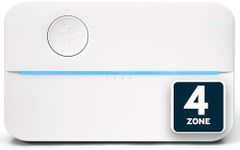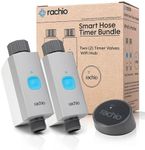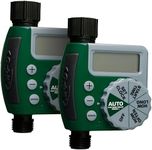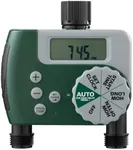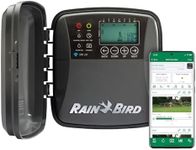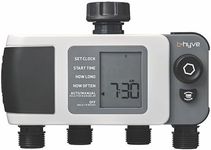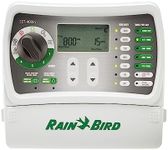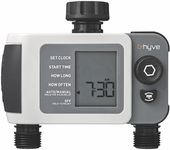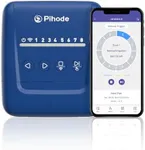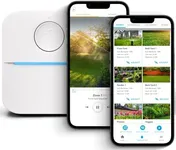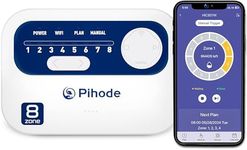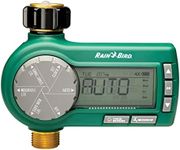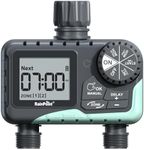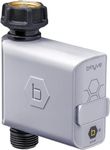Buying Guide for the Best Watering Timers
Choosing the right watering timer can make a significant difference in maintaining a healthy garden or lawn. A watering timer automates the process of watering your plants, ensuring they get the right amount of water at the right time, even when you're not around. To pick the best watering timer for your needs, it's important to understand the key specifications and how they align with your gardening requirements.Number of ZonesThe number of zones a watering timer can control refers to how many separate areas or irrigation lines it can manage. This is important because different plants or garden sections may have varying water needs. If you have a small garden or lawn, a timer with 1-2 zones may suffice. For larger gardens with diverse plant types, you might need a timer that can handle 4 or more zones. Choose based on the complexity and size of your garden.
Programming FlexibilityProgramming flexibility refers to how customizable the watering schedules are. This is crucial for ensuring your plants get the right amount of water at the right times. Basic timers may offer simple daily or weekly schedules, while more advanced models allow for multiple start times, specific days of the week, and even seasonal adjustments. If you have a variety of plants with different watering needs, opt for a timer with more programming options.
Watering DurationWatering duration is the length of time the timer will keep the water running for each zone. This is important to ensure that each plant gets the appropriate amount of water. Basic timers might offer fixed durations, while advanced ones allow you to set precise times, from a few minutes to several hours. Consider the water requirements of your plants and choose a timer that allows you to set the appropriate duration for each zone.
Power SourceWatering timers can be powered by batteries, solar energy, or plugged into an electrical outlet. The power source is important for convenience and reliability. Battery-powered timers are easy to install and move but require regular battery changes. Solar-powered timers are eco-friendly and low-maintenance but need sufficient sunlight. Plug-in timers offer consistent power but require a nearby outlet. Choose based on your garden setup and preference for maintenance.
Weather ResistanceWeather resistance refers to the timer's ability to withstand outdoor conditions such as rain, sun, and temperature fluctuations. This is important for durability and longevity. Look for timers that are labeled as weatherproof or waterproof, especially if they will be exposed to the elements. If your timer will be placed in a sheltered area, weather resistance may be less critical.
Smart FeaturesSmart features include connectivity options like Wi-Fi or Bluetooth, allowing you to control and monitor your watering schedule via a smartphone app. This is important for convenience and precision. Smart timers can offer features like weather-based adjustments, remote control, and notifications. If you prefer hands-on control and monitoring, a smart timer can be a great choice. If you prefer simplicity, a basic timer without smart features may be sufficient.
